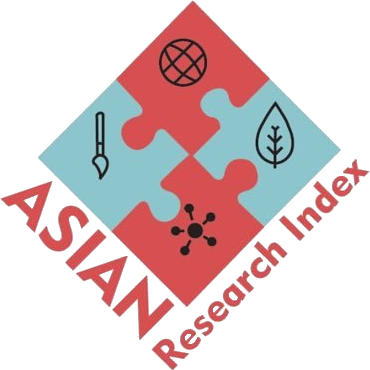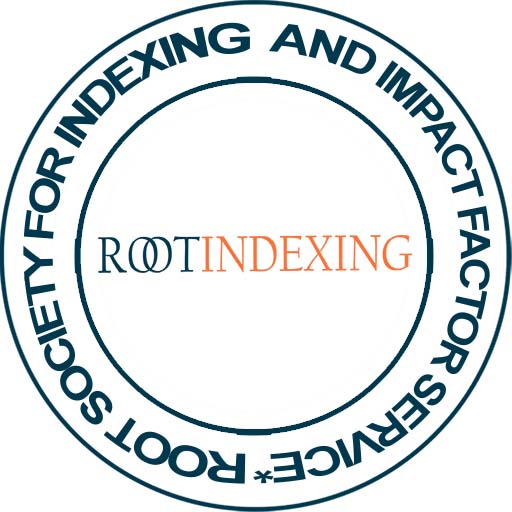ISRAELITES APOSTASY AND DEATH PENALTY: A RESEARCH REVIEW
DOI:
https://doi.org/10.5281/zenodo.10456439Keywords:
Apostasy of Banī Isrāīl, Injunctions of the Old Testament, The New Testament teachings, Death Penalty for Apostasy, Islamic point of viewAbstract
Regarding the chain of Prophethood, Allah Almighty sent most of the Prophets to Banī Isrāīl. These prophets directed them to monotheism and prevented from disbelief and polytheism. The history of the ancient nations shows that the most disobedient nation was Banī Isrāīl which took the path of apostasy many times and they were severely punished for this crime. In relation to apostasy's penalty, both the Qur‘ān and the Bible have a common statement. Both books are convinced of the death penalty for apostates. However, the critics mostly criticize Islam only and ignore the teachings and severe punishments of the Bible. This short article reviews the apostasy and punishment of the Children of Isrāīl and seeks to prove that the decision of both the Bible and the Qur‘ān is the same when it comes to apostasy punishment.
References
The Encyclopedia of Diderot & d’Alembert, (Paris, Michigan Publishing, University of Michigan Library, 1751, 2012), vol. 1, 535
Hobart & Robbins, A Biblical and Theological Dictionary (Boston, Massachusetts Sabbath School Society), 29
Lindsay Jones, Encyclopedia of Religion (USA, Thomson Corporation, 2005), 2nd edi, vol.1, 430
Ibid
John Louis Nuflesen ; Mullins Edgar Y., The International Standard Bible Encyclopaedia (The Howard Severance Company, 1915), v.1, 202
The Encyclopaedia Britannica (New York, University of Cambridge, 1911), 11th edi, vol.2, p.196
Ibid
Al-Qur’ān, 4:163
Al-Qur’ān, 87:18-19
Al-Qur’ān, 4:163
Al-Qur’ān, 57:27
Al-Qur’ān, 2:217
Al-Qur’ān, 3:31-32,132 ; 4:59,80 ; 5:92 ; 8:1,20,46 ; 24:54,56 ; 47:33 ; 58:13 ; 64:12
Bukhārī, al-Jām’e al-Ṣaḥīḥ, Book.81, Chapter. 53, Ḥadīth.6593 ; Book.56, Chapter. 149, Ḥadīth.3017 ; Tirmadhī, Book.31, Chapter.1, Ḥadīth.2158 ; Abī Shaybah, Abī Bakr ’Abdullah b. Muḥammad, Al-Muṣannif, Beirut, Dār al-Qiblah Al-Thaqāfa al-Islamiah, 2006, Book.31, Chapter.168, Ḥadīth.29593
The Gospel of Matthew, 5:17
Al-Qur’ān, 3:3
Joshua, 23:6-8 ; Exodus:20:1-5 ; Deuteronomy, 8:19-20, 11:16-17, 13:1-4, ; Psalms, 100:1-3 ; 1 Kings, 9:6-72 ; 2 Kings, 17:35-37
Exodus, 34:14-17 ; Leviticus, 26:27-28 ; Joshua, 23:16 ; 2 Chronicles, 24-17-18 ; Ezekiel, 20:32-36 ; Jeremiah, 25:6-7
Exodus, 32:7-8
Al-Qur’ān, 2:51,92 ; 7:148 ; 20:88
Exodus, 32:27-28
Nuelsen, John L. Mullins, Edgar Y. (1995). The International Standard Bible Encyclopaedia. Chicago: The Howard-Severance Company. vol.1, p.345
Numbers, 25:1-3
Psalms, 106:28 ; The Book of Hosea, 9:10
Numbers, 25:4-9
Judges, 8:22-28, 8:33-34
Nuelsen and Mullins, Bible Encyclopaedia. p.346
Nuelsen and Mullins, Bible Encyclopaedia. P.346
Kings, 22:51-53
Kings, 1:1-3
Judges, 2:11-13
Kings, 11:33
Elder, Gregory. (2007 January 11). Baal, Ashtoreth and Molech-God’s Old Testament Rivals. Redlands: Daily Facts.
Zephaniah, 1:4-5
Judges, 10:6
Kings, 11:33
Judges, 2:14-15
Psalms, 106:37-42
Al-Qur’ān, 19:28-30
The Gospel of John, 16:1-4
Jude, 1:4
The Gospel of Matthew, 18:6
Broadus, John Albert. Commentary on the Gospel of Matthew. Philadelphia: American Baptist publication. p.384
Morison, James. A Practical Commentary on the Gospel According to St. Matthew. London: Hodder and Stoughton. p.314
Timothy, 1:3-6
Ibid, 4:1-2
Ibid, 6:20-21
Downloads
Published
How to Cite
License
Copyright (c) 2023 AL MISBAH RESEARCH JOURNAL

This work is licensed under a Creative Commons Attribution 4.0 International License.
AL-MISBAH Research Journal is full open access and licensed under Creative Commons Attribution 4.0 International License; and Published by: Research Institute of Culture & Ideology (REINCI), Islamabad, Pakistan. This allows the research community and the general public to gain unlimited, free and immediate access to scholarly articles, and to reuse the content freely provided that proper attribution is given to the original authors.









